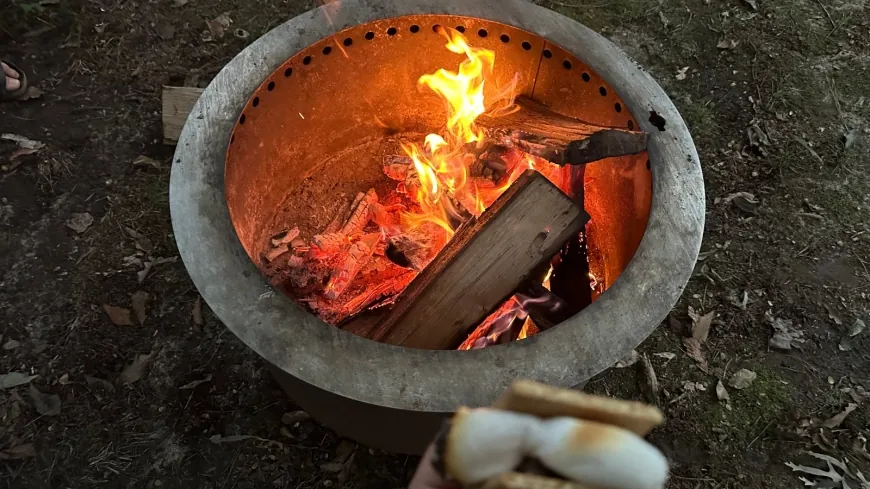Virginia Department of Forestry provides burning safety tips amid dry conditions

RICHMOND, Va. (WRIC) -- Due to recent dry conditions in many areas of Virginia, the Department of Forestry is providing tips for safe burning to avoid starting wildfires.
The department said the state has averaged less than one inch of rain for a month. Since leaves are falling and drying out, they can act as potent fuel for a wildfire.
Because of these conditions, the department is urging folks to be careful with campfires and avoid burning debris until their area receives a soaking rainfall. The department even suggests opting to wait until December to burn debris.
The department urges residents to follow these guidelines:
- Call before you burn yard debris. Check with your local fire department, the Virginia Department of Forestry office, or the Air Protection Authority (Virginia Department of Environmental Quality) to learn if there are any burning restrictions and if a permit is required.
- Know the weather forecast. Never burn on dry or windy days because it is easy for fire to spread out of control.
- Burn only yard debris. State regulations prohibit the open burning of any material that creates dense smoke or noxious odors. No one in Virginia can burn tires or other hazardous materials at any time.
- Keep your burn pile small or use a burn barrel. Clear at least a 15-foot radius around a barrel and at least a 25-foot radius around a burn pile, and make sure there are no tree branches or power lines above. Wet down the surrounding area before, during, and after the burn.
- Always have water and fire tools on site. Keep a water-charged hose, a bucket of water, a shovel, and dirt or sand nearby to extinguish the fire.
- Stay with the fire. Virginia law requires that you monitor a debris burn continually from start to finish, until the fire is completely out.
- Extinguish the fire. Drown the burn pile with water, stir the coals, and drown again. Repeat until the fire is completely out. Check the fire again. Check old burn piles, as they can retain heat for several weeks and rekindle when the weather warms and the wind begins to blow.
- If your fire escapes or gets beyond your control, call 911 immediately; even a slight delay may be disastrous. Do not try and fight the fire unless it is small and you can do so safely and easily. Leave this up to the trained firefighters.
- Caution. You may be using different types of small equipment when working in the yard. Lawnmowers and chainsaws are examples of equipment that can cause a wildfire when sparks ignite vegetation such as grass, weeds, or leaves.

 VENN
VENN 





